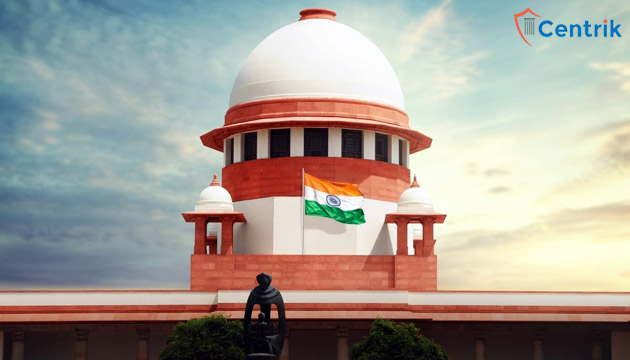
Status as on- 29/06/2021
Brief Facts of the case:
- The corporate insolvency resolution process (CIRP) against Jaiprakash Infratech Limited (JIL) began on August 9, 2017, when the National Company Law Tribunal, Allahabad (NCLT) issued an order admitting IDBI Bank Limited’s petition under Section 7 of the Insolvency and Bankruptcy Code 2016. (IBC).
- Home buyers who had invested in JIL housing projects were allowed by the Interim Resolution Professional (IRP) to submit their claims as ‘other creditors,’ subordinate to JIL’s financial and operational creditors. Following that, a number of writ petitions were filed before the Supreme Court to specifically protect the interests of home buyers, as the IBC did not give them any preferential treatment. Chitra Sharma & Ors. v. Union of India & Ors., W.P. (C) No. 744 of 2017, was the lead matter in these writ petitions (Chitra Sharma).
- In the interim, the IRP was allowed to take over JIL’s management and continue with the CIRP process while protecting the interests of home buyers, because home buyers did not have a representative on JIL’s committee of creditors (CoC). The Supreme Court also ordered Jaiprakash Associates Limited (JAL), JIL’s holding company, to deposit Rs. 2000 crores to protect the interests of home buyers.
- Despite discussions with four resolution applicants, no resolution plan was approved by the CoC within the 270-day CIRP period that ended on May 12, 2018.
- If a resolution plan is not approved by the CoC and presented to the adjudicating authority for approval under Section 31 within the CIRP period of 270 days, the adjudicating authority is required to pass an order liquidating the corporate debtor, according to Section 33 (1) of the IBC. Citing the ‘interests’ of home-buyers, JAL argued before the Supreme Court that the liquidation of JIL was not in the best interests of home-buyers and that JAL/JIL should be allowed to complete the housing projects on time, with oversight from a Court-appointed committee.
- Meanwhile, the Insolvency and Bankruptcy (Amendment) Ordinance, 2018 (Ordinance), which went into effect on 06.06.2018, amended the IBC to include home buyers as ‘financial creditors.’
Held
- Amounts raised from allottees in real estate projects are considered to be amounts having the commercial effect of a borrowing.
- As a result, outstanding payments to allottees in real estate projects are statutorily classified as financial debts. Such allottees are now included in the definition of “financial creditors.”
- The Insolvency and Bankruptcy (Amendment) Ordinance, 2018, which went into effect on June 6, 2018, aimed to assuage home buyers’ concerns. The Ordinance brings home buyers within the purview of financial creditors under the IBC.
- As the amendment was introduced after the initiation of the CIRP Process and the constitution of the CoC, the SC reconstituted the CoC using its powers under Article 142.
- In its decision, the Supreme Court issued several significant directives, effectively resuming the CIRP. To protect the interests of all concerned stakeholders in JIL’s CIRP and prevent it from being liquidated, the Supreme Court ordered that the initial period of 180 days be reinstated with effect from August 9, 2018 (extendable by a further period of 90 days under the provisions of IBC, if necessary), and a new CoC be formed in accordance with the amended provision.
- The Supreme Court has also directed that the IRP have the option of inviting new bids in order to provide the CoC with a broader field of choice, and that throughout this process, JIL and JAL, as well as their promoters, would be ineligible to participate in the CIRP due to the bar under Section 29A of the IBC. The Court also granted the RBI’s request to initiate CIRP against JAL in order to address the airline’s financial distress. The money deposited by JAL is to be transferred to NCLT so that an appropriate decision can be made.
Impact of the case
The Chitra Sharma decision demonstrates the Supreme Court’s firm stance that CIRP is a process that requires “expert determination,” and thus courts must not intervene or supervise its complexities.
The Supreme Court has also made it clear that strict adherence to Section 29A of the IBC is required, and that errant promoters will not be permitted to participate in corporate debtors’ CIRP. It refrained from ordering the release of the Rs. 750 crores deposited by JAL, along with interest, to the home buyers, who are now recognized creditors under the IBC, as being in conflict with the interests of other stake holders, namely financial creditors.
The Supreme Court reiterated that it was bound by the rule of law and intervened to protect the interests of home buyers only to the extent of restarting the CIRP, despite the fact that the IBC requires compulsory liquidation after the 270-day CIRP period expires. This was due to the ‘unusual situation,’ in which an amendment to the law resolved the vexing issue of homeowner treatment, which was at the heart of the petitions before it.
Conclusion
While acknowledging homebuyers as financial creditors, the Supreme Court in this case left open the question of whether they are secured or unsecured creditors. The Supreme Court did not agree to the payment of amounts deposited by the promoter to homebuyers on the grounds that it would be preferential payment to one class of creditors. The IBC is a well-equipped legislative framework for dealing with the concerns of all stakeholders. Keeping this in mind, the Supreme Court, in its wisdom, has invoked the IBC’s discipline and upheld the procedures to be followed under it.
Source- Chitra Sharma and Ors vs Union of India and Ors
Supreme Court Judgment dated August 9, 2018 in WRIT PETITION (CIVIL) NO 744 OF 2017)
Disclaimer– The above article is based on the interpretation of related laws which may differ from person to person. The readers are expected to take legal advice before placing reliance on it. For more information, please reach at support@centrik.in




 join For Updates
join For Updates